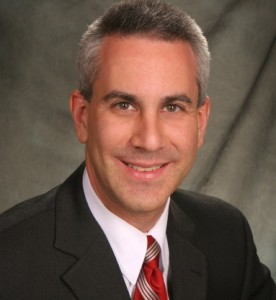Aug 23, 2007, Vol. V Issue 17
Dear Friends,
As I shared in our last issue, I’m taking this lapse in summertime meetings to feature some speakers I’ve been adding to our website. As a result of escalating obesity and diabetes numbers, I’ve been scouting experts for those of you holding events to educate and inspire people about diabetes management, prevention and heart health – both for your community and health professionals. Today, we’re featuring Michael Dansinger, MD, nutrition expert for “The Biggest Loser” television show on NBC.
Of all the reality shows, my husband and I enjoy this one the most, primarily because rather than being spiteful and competitive, the contestants are supportive and appear to build strong relationships. Nonetheless, the weight loss is amazing and anyone might question it. So what’s behind it – why and how and is it realistic?
Get the inside scoop right here from Dr. Dansinger.
Michael Dansinger, MD
Behind the Scenes of The Biggest Loser
“Through rigorous adherence to a healthy eating strategy and an intensive exercise regimen, ‘The Biggest Loser’ show participants routinely reverse their severe obesity within months,” says Dr. Dansinger. He believes that this NBC prime-time reality television show, now in its 4th season, has inspired a nation to change for the better.
“Viewers are treated to a weekly reminder that lifestyle change is potent medicine,” he says, “and as a nation watches the determined participants go from seriously obese, to normal, and then even become muscular, one often feels renewed hope that America will inevitably reverse the escalating obesity crisis.”
 Michael Dansinger, MD, an internationally recognized authority on dietary and lifestyle counseling for weight loss and prevention of obesity-related medical problems, is the weight loss and nutrition advisor for NBC’s hit prime time series “The Biggest Loser,” and a contributor to the best selling book series based on the show.
Michael Dansinger, MD, an internationally recognized authority on dietary and lifestyle counseling for weight loss and prevention of obesity-related medical problems, is the weight loss and nutrition advisor for NBC’s hit prime time series “The Biggest Loser,” and a contributor to the best selling book series based on the show.
Dr. Dansinger holds multiple academic positions. He is the Clinical Nutrition and Obesity Editor for WebMD’s academic journal (MedGenMed), an Assistant Professor at Tufts University School of Medicine in Boston, a scientist with the US Department of Agriculture’s Nutrition Research Center, and a medical staff member of the Division of Endocrinology at Tufts-New England Medical Center.
Speaking of his experience with “The Biggest Loser,” he would be the first to tell you that people in the show are in a fantasy — an unrealistic environment where everything is optimized for weight loss. “Everything from working with a trainer to having absolutely nothing else to do makes it possible for contestants to completely indulge themselves in their diet and exercise routines,” he said.
He said that 50 to 60 percent of their weight loss success comes from dietary change. Whereas on average before the filming begins, they’ve been consuming around 3000 calories a day, once the show begins, they consume about 1500 calories a day. In reality, few people are really in a position to cut their calories by 1500 a day. He also says there’s nothing controversial about the diet, and the contestants are not given pills or any other shortcuts.
The other 40 to 50 percent of weight loss comes from the three hours of exercise the contestants do every day — an hour of strength training and two hours of cardio training. That helps them burn an additional 1,200 to 1,500 calories, Dansinger says. “That would be hard to do by yourself in real life, but on the show it’s easy to do,” he says. “When people are put in that kind of environment, when you pull out all the barriers to weight loss, that’s when the weight loss can come very quickly.”
And what took him out of a primary care practice and brought him into research and the limelight of a television reality show? It was a joke, he said, actually, from a patient. He had been an excellent primary care doctor, well-liked by his patients, yet the time pressure of having to diagnose and treat up to 30 patients per day in community medical practice seemed unfair to him.
As a patient started to tell him a joke, he realized that there were several patients waiting to be seen. He recalls feelings of frustration and concern about having to choose between making the next patients wait even longer, or telling the current patient there was no time for a short joke. It was symbolic to him of the pressure that community physicians face daily in health care systems that leave little time for letting patients and their care providers get to know one another. That same day he recognized that he needed to help patients in a very different way. Within a year he transitioned away from community medicine to become a student again, in a career shift that would leave him nearly penniless, with no guarantee of success or happiness. With unwavering faith in his vision and his ideals, he persevered until he found his life’s calling. He believes the nation’s top health crisis is the escalating obesity, and its offspring, the diabetes epidemic, and his passion is finding ways to help reverse the devastation.
Clinical research remains his primary focus. He was awarded a 5-year research grant (2005-2010) from the National Institutes of Health to study the effectiveness of the recently updated USDA Food Pyramid. He is comparing it to an alternative Low Starch Pyramid for weight loss and reduction of heart disease risk factors in 200 overweight adults.
“The Biggest Loser Show,” the internationally recognized NBC prime-time reality weight loss series, recruited him in 2005. Following their blockbuster first season, he was called upon to help define “The Biggest Loser Diet” which was responsible, in part, for the astounding weight losses (average 100 pounds) routinely seen on the show. This diet, featuring a “4-3-2-1” pyramid, is a centerpiece of the best-selling book series based on the show.
He has been interviewed about his weight loss experience on the Today show, CNN, PBS, National Public Radio, CBS Radio, BBC Radio, Canadian Public Radio, Italian Public Television, Oprah magazine, Time magazine, Consumer Reports, USA Today, NY Times, Washington Post, Boston Globe, and appears in Who’s Who in Medicine and Science.
He is trained as both a physician and scientist, and loves sharing his passion about these topics using humorous slides and stories to illustrate his presentations. Here is more information about two of his programs.
“Beating Obesity: Mission Impossible?” was created for the general public and healthcare professionals. In this one, he starts with a laugh-out-loud introduction acknowledging our love/hate relationship with unhealthy food. Dr. Dansinger discusses how and why the societal epidemics of obesity, diabetes, and related health problems have reached such desperate proportions. Can we reverse the trends? Dr. Dansinger provides some of the optimism and insight necessary for our society to conquer this “mission impossible,” and teaches the audience how individuals can rapidly reverse or prevent obesity and diabetes. Based on his inspirational work with NBC’s “The Biggest Loser,” and his own Diabetes Reversal Clinic, he shares his principles of “strategic eating” and “accelerated weight loss” and demonstrates how some individuals on the show lose up to 100 pounds in 3 months, or even 200 pounds in under a year.
He also offers a program designed specifically for healthcare professionals. Primary care providers typically feel beaten down by obesity-related medical problems, especially type 2 diabetes. While most clinicians agree that lifestyle change can be potent medicine in principle, many have found it impractical, ineffective, or downright hypocritical to preach lifestyle change in today’s clinical environment. In his presentation, “Reversing Diabetes in Primary Care,” Dr. Dansinger provides an engaging and informative discussion of the underlying causes of society’s obesity and diabetes epidemics, the role the medical establishment should play in prevention, and what primary care practices can do to reduce type 2 diabetes in their patient population. He discusses principles of “accelerated weight loss” under idealized conditions, provides dramatic reminders about the power of lifestyle change, and motivates providers to learn to harness that power for use in the clinic. He details the techniques he uses in his own Diabetes Reversal Clinic to identify patients amenable to lifestyle change, and explains how to coach motivated patients to achieve diabetes remission or substantial medication reduction.
Please call me at 503-699-5031 or visit our website to book Dr. Michael Dansinger.
A Grateful Return
Home again. I didn’t take it for granted this time. We had a fantastic week of great weather, sunsets, campfires, star-gazing, wildlife, and fresh seafood along the coastal bays and rainforests of Washington’s Olympic Peninsula.
 We did a little kayaking, a little sightseeing, some reading, lots of relaxing and a little traveling. We just took each day and did whatever appealed to us for that day. I even resisted the waitress’ invitation to use their free internet service when we stopped for breakfast somewhere in what I thought was a wilderness governed by the Quinalt Indian Nation. It was truly a vacation week of well being.
We did a little kayaking, a little sightseeing, some reading, lots of relaxing and a little traveling. We just took each day and did whatever appealed to us for that day. I even resisted the waitress’ invitation to use their free internet service when we stopped for breakfast somewhere in what I thought was a wilderness governed by the Quinalt Indian Nation. It was truly a vacation week of well being.
Then, within 100 miles of home, in a downpour, we suddenly came upon a pile-up accident on the freeway. We were headed right for it – I was bracing for the impact — when my husband saw an opening to the left and with razor quick skill, drove us through it. It was so close, my adrenaline went into overdrive. I am ever so grateful to be able to resume my life, rather than spend it dealing with the aftermath of an accident. I’m appreciating every routine day — a bonus from the unexpected ending to a perfectly peaceful and enjoyable vacation.
Until next time, be good to yourself for your good health and those you love.
Yours truly in good health,
Barbara
PLEASE NOTE: The information shared in this e-news is designed to help you make informed decisions about speakers and the programs they offer. It is not intended as a substitute for any treatment prescribed by a doctor. If you suspect you have a medical problem, seek competent medical help.
About Our Services
You’ll find many of our speakers on our website, SpeakWellBeing.com.
or please call anytime and let us assist you.
The Speak Well Being Group specializes in providing exceptional speakers for health, wellness and women’s events. Because we’ve worked with so many hospitals and healthcare groups around the country, we speak your language. When you work with us, you’ll come back for more “How are we going to top that?” speakers.
Your feedback is always welcome and appreciated! Write to us at barbara@speakwellbeing.com

